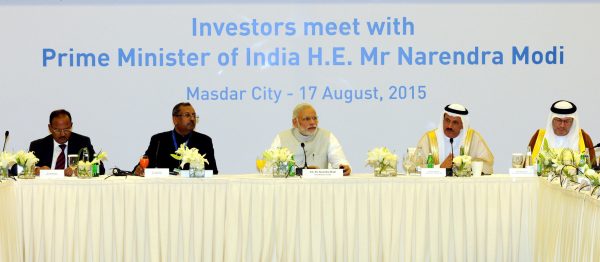A couple of weeks in the past, India’s Chief Justice N.V. Ramana argued in London that India can grow to be a popular vacation spot for international funding due to its impartial judiciary and rule of legislation. Just a few days later, that principle was put to the check within the restive state of Uttar Pradesh: There, within the capital metropolis of Lucknow, a sprawling new mall constructed by a famous Indian Muslim businessman, Yusuff Ali, was subjected to a spate of Hindu nationalist assaults.
Ali’s Lulu Group — which has constructed a big footprint within the Center East over the previous couple of a long time — had introduced in a large funding of over $250 million and as many as 15,000 jobs with its new mall in Lucknow. But, shortly after the mall was inaugurated by Chief Minister Yogi Adityanath, Hindu nationalist teams claimed that 70 p.c of the employees is Muslim.
When that cost was refuted by the mall’s administration, a video surfaced, exhibiting a handful of individuals offering Muslim prayers in a nook of the mall. Quickly, Hindu nationalists retaliated by reciting Hindu chants in response.
It wasn’t merely Hindu nationalists who needed a slice of the controversy. Final week, Muslim chief Azam Khan of the opposition Samajwadi Celebration claimed that Yusuff Ali is a fundraiser for the Hindu nationalist Rashtriya Swayamsevak Sangh (RSS) — broadly seen because the ideological fountainhead of the ruling Bharatiya Janata Celebration (BJP). Khan additional mentioned that Ali “desires to create communal violence within the state.”
The sequence of controversies — all going down in lower than a month because the mall’s opening — starkly highlighted the numerous long-term problem dealing with India’s efforts to grow to be a worldwide funding vacation spot.
Within the final fiscal yr, India benefited from a record high inflow of international direct funding (FDI) — to the tune of just about $80 billion. Prime Minister Narendra Modi’s authorities credited that to its “liberal and open” FDI coverage. But, in more moderen occasions, a quickly weakening rupee, inflation fueled by the struggle in Ukraine, and rising rates of interest within the West may deter additional inflows. Up to now this yr, international traders have pulled out nearly $30 billion from Indian shares — additionally a report.
Communal tensions are usually not misplaced on international traders and companies both. Earlier this yr, reports said that international tech corporations primarily based in Bengaluru — lengthy well-known as India’s Silicon Valley — had been trying to shift to the neighboring state of Tamil Nadu after bearing the brunt of rising communal strife. The state of Karnataka — of which Bengaluru is the capital — is dominated by the BJP and has seen a spate of clashes and controversies in latest months.
Early this yr, the Karnataka authorities launched a so-called anti-conversion law to forestall compelled spiritual conversions. Within the run-up to its passage, scores of Christians and church buildings had been attacked by Hindu nationalist vandals. In the meantime, in some authorities faculties, Muslim girls had been barred from attending lessons whereas carrying headscarves. That transfer was adopted by more clashes between Hindu and Muslim college students. Muslim meat distributors had been additionally targeted after a pacesetter of the BJP demanded a ban on halal meat.
Karnataka’s worsening social ambiance even compelled main industrialists to talk out. In a tweet, Kiran Mazumdar Shaw, founding father of the biotechnology agency, Biocon, appealed to Chief Minister Basavaraj Bommai “not [to] permit such communal exclusion.”
Modi has lengthy expressed an ambition to show India into a worldwide funding hotspot, and none of that is useful towards that trigger. The speedy marginalization and exclusion of India’s 200 million Muslims will reduce the nation’s financial potential considerably, and frequent communal clashes will deter international companies from committing long-term funding.
In 2021, over 160,000 Indians renounced their citizenship around the globe — the very best quantity recorded within the final 5 years. That determine, actually, had grown steadily within the previous 5 years — solely being impeded in 2020 by the pandemic. This yr, about 8,000 millionaires are expected to depart India — placing it third on the record of nations shedding rich folks, after Russia and China, in accordance with the worldwide migration consultancy, Henley and Companions.
Politically, there are few encouraging indicators that any of that is going to alter. This yr, the last remaining Muslim lawmaker within the BJP resigned, thereby leaving the BJP and not using a single Muslim amongst its 395 members in Parliament.
But when India is to efficiently grow to be a worldwide funding vacation spot, Modi might want to sign to the world that he’s constructing a extra harmonious and inclusive democracy.


